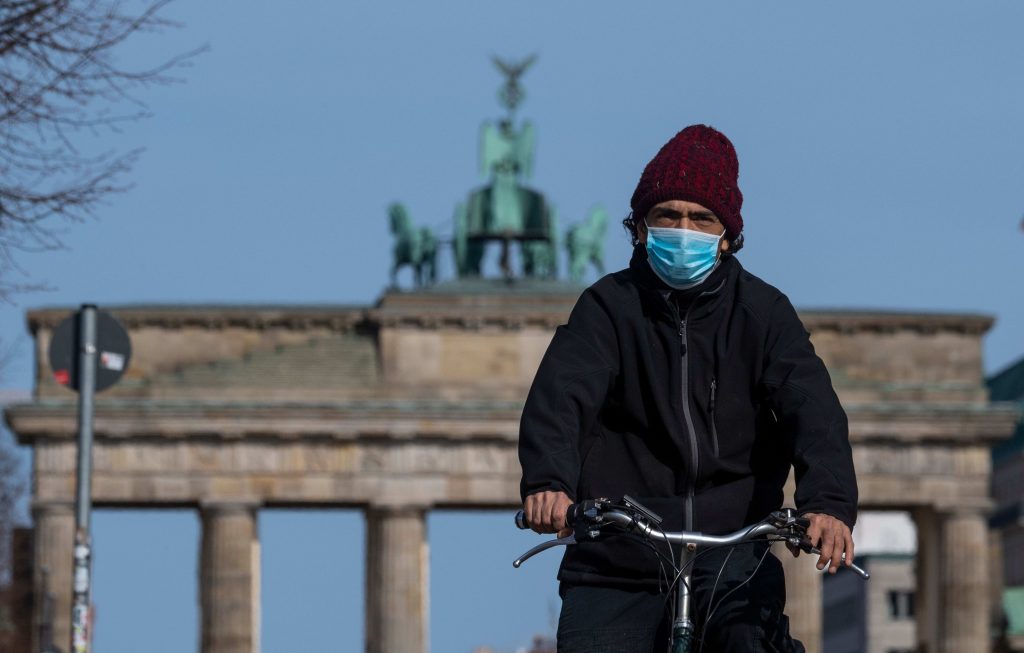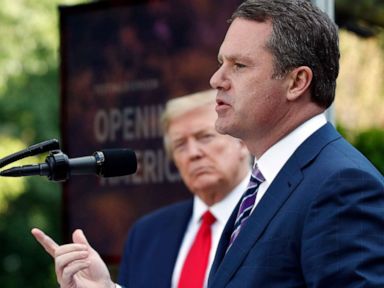
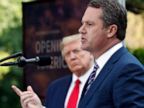

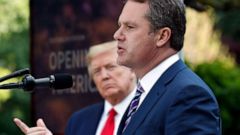
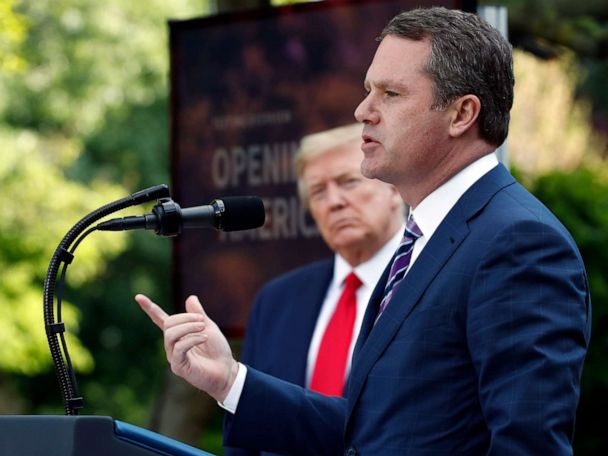
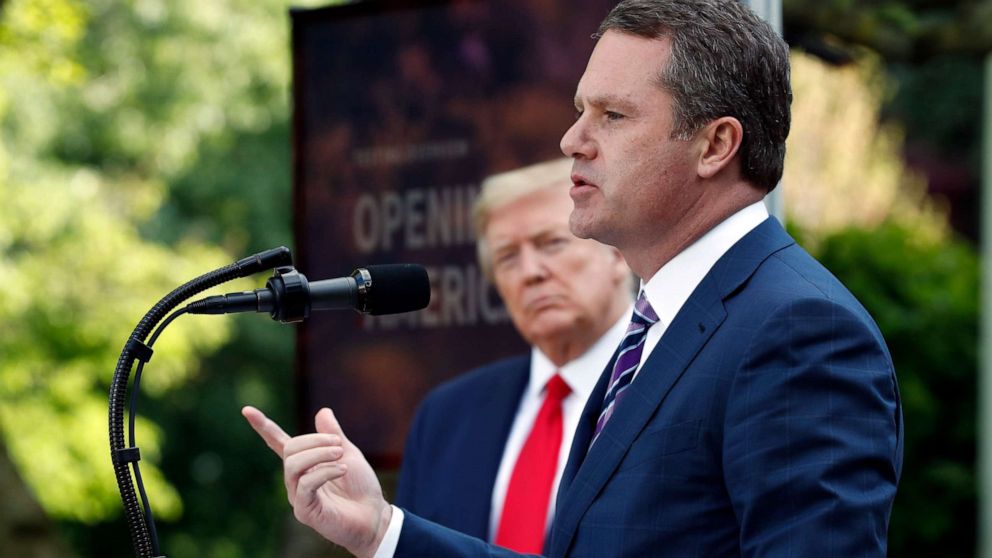
President Trump doubled down Monday on an effort to enlist major retailers to set up drive-through coronavirus testing locations around the country — an undertaking that has shown only modest progress since the White House first announced the idea six weeks ago.
“Testing is not going to be a problem at all,” Trump said Monday, before inviting the CEOs of CVS, Walmart, Walgreens and Rite Aid to the podium to describe their plans to scale up the nasal-swabbing stations.
The executives from the four giant retailers announced a goal of opening more than 1,000 testing locations by the end of May, capable of processing more than 1.5 million tests per month. The numbers are dramatic, but the prospects for achieving them remain unclear.
“We’ve made such strides, like it wouldn’t even be — you wouldn’t even believe it,” Trump said after a closed-door meeting with the executives just before the Rose Garden briefing.
But those and other major retailers have made only modest progress in the 45 days since Trump first announced the federal partnership, predicting Americans would be able to easily access drive-thru testing sites in parking lots across the country.
“The goal is for individuals to be able to drive up and be swabbed without having to leave your car,” Trump said in his March 13 remarks in the Rose Garden.
Since that time, the participating retail giants — who boast a combined 28,903 store locations across the country — have launched 69 drive-thru testing sites.
Rite-Aid, which has stores in 2,564 locations around the country, has opened the most, with 25 virus testing stations, creating a capacity to conduct 5,000 tests a day. Walmart has opened 20 testing sites, Walgreens has opened 18, and CVS has launched five in five states.
Target, which has 1,871 stores across the country and did not send a representative to the White House briefing on Monday, has opened just a single testing-site, in California. A spokesman for the retail giant said the chain was hindered because it sold its pharmacy business years ago. It has plenty of physical space available in store parking lots, said Joshua Thomas, the Target spokesman, but had no ready ability to quickly start administering tests.
The entire effort has had to move at a breakneck pace. When President Trump announced the initiative in March, the retailers had only just learned of it. Walmart Executive Vice President Dan Bartlett wrote in a blog post Monday that the request from the White House to stand up testing sites came on March 12 — just one day before the first Rose Garden announcement.
“By seven the next morning, hours before the Rose Garden announcement, a dozen members of our team had set up cones and tents on a parking lot, mapping out where people would be positioned and how cars would flow through,” Bartlett wrote.
Retail executives said they had to learn as they went, receiving only limited assistance from federal health officials whose support came mostly in the form of guidance on where to open the sites, Christopher Savarese, a a Rite Aid spokesperson, told ABC News.
“It was not without its challenges, including limits on personal protective equipment (PPE), which inhibited our ability to scale faster, but we worked through the issues as quickly as possible,” Bartlett wrote in his post. “Because none of this was the traditional role of a retailer, we pieced together how to run a testing site in the middle of a pandemic using two main principles to guide us: make sure everyone on site is safe; and provide a quality test.”
Both the White House and the retailers say the drive-thru testing initiatives have real promise to expand the universe of people being tested, a major goal in the effort to track and treat victims of the outbreak. That is especially true in smaller states and communities, officials said.
Just a single CVS drive-thru testing site in Rhode Island doubled the testing capacity of the entire state, according to a statement by Rhode Island Governor Gina Raimondo, who called the initiative a “giant leap forward.” More than 100 cars lined up three hours before opening time at a Walmart drive-thru site for first responders in Chicago.
In their announcements Monday, both CVS and Walmart said the development of new, self-administered nasal swab tests will help them expand the initiative more quickly.
“By utilizing self-administered swabbing tests, we can more rapidly increase the frequency and efficiency of testing, as our point-of-care testing capacity increases,” Joe Goode, a spokesperson for CVS, told ABC News. “This allows us to continue to help slow the spread of the virus and start to responsibly reopen the economy when experts tell us it’s safe.”
Walgreens touted its partnership with testing giant LapCorp in its ability to ramp up. But the outlet’s press team also noted that the success of the effort is not entirely within the company’s control.
“The scale and timing of the overall testing expansion is dependent on the availability of tests and overall lab capacity,” Walgreens noted in a press release.

